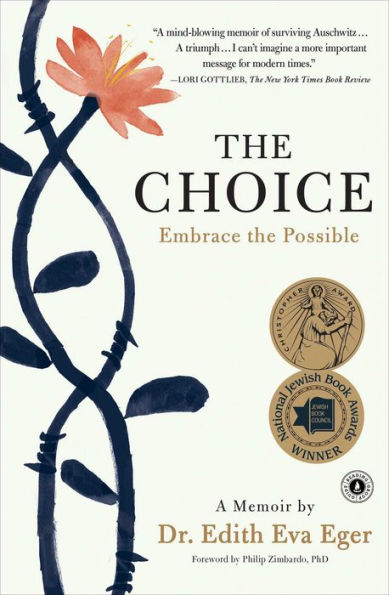There are some books you will remember forever. You’ll remember where you opened them up for the first time, you’ll remember how you felt when you finished them. THE CHOICE is one of those books for me.
At first glance,THE CHOICE seems like a Holocaust memoir. Edith Eger was only 16 when the Nazis took her and her family to Auschwitz—when she saw her parents led into the gas chambers, when she had to dance in front of Mengele to prove her worth. She suffered through unspeakable tragedy, even after being liberated from her third concentration camp. She found love and had to sacrifice everything else to keep love in her life, and it was only when she landed in Georgia that she was allowed to feel any sort of safety.
And yet. This book isn’t all memoir. It’s not a book that requests an audience to see the author as a victim, or even one that requests empathy. It doesn’t demand you pay your penance in guilt, nor does it ask that you find the parallels in our present-day world. It asks you to listen and, maybe, aim to grow a little. Because this book is also a guide on how to heal your own traumas and live a more optimistic life.
Dr. Edith Eger survived the Holocaust and became a therapist, specializing in PTSD for veterans and abuse victims. She believes that all trauma is trauma, and no experience should be discarded as “frivolous” or “trivial.” She believes that the essence of our happiness lies in our own predilection toward happiness. In theory, she believes that you can choose your outlook and your reality will follow.
Sure, she uses the story of her own life and the horrors she suffered to demonstrate her points. Dr. Eger also interweaves it with case studies of other people who struggle with the hand they’ve been dealt in life, and she uses experiences to drive her point home. I will never forget the story about the veteran who comes home to find his wife had been cheating on him. He wants to kill her but instead is sent to see Dr. Eger. She sits him down, allows him to feel his anger, and then says something along the lines of “when my sister left the camp, she wanted to kill the Nazis’ parents as they killed ours. But it’s up to you to choose love instead of hate.”
So, where was I when I read this book? It was my first day working as a real sales rep, and I was terrified of actually pitching books to the independent bookstores and having them take chances based on my recommendations. But Dr. Eger’s book gave me the strength and the perspective to choose a more optimistic view. This is not your average memoir, and it’s not your average self-help book. It’s something in the middle, and I don’t think you have to choose.









